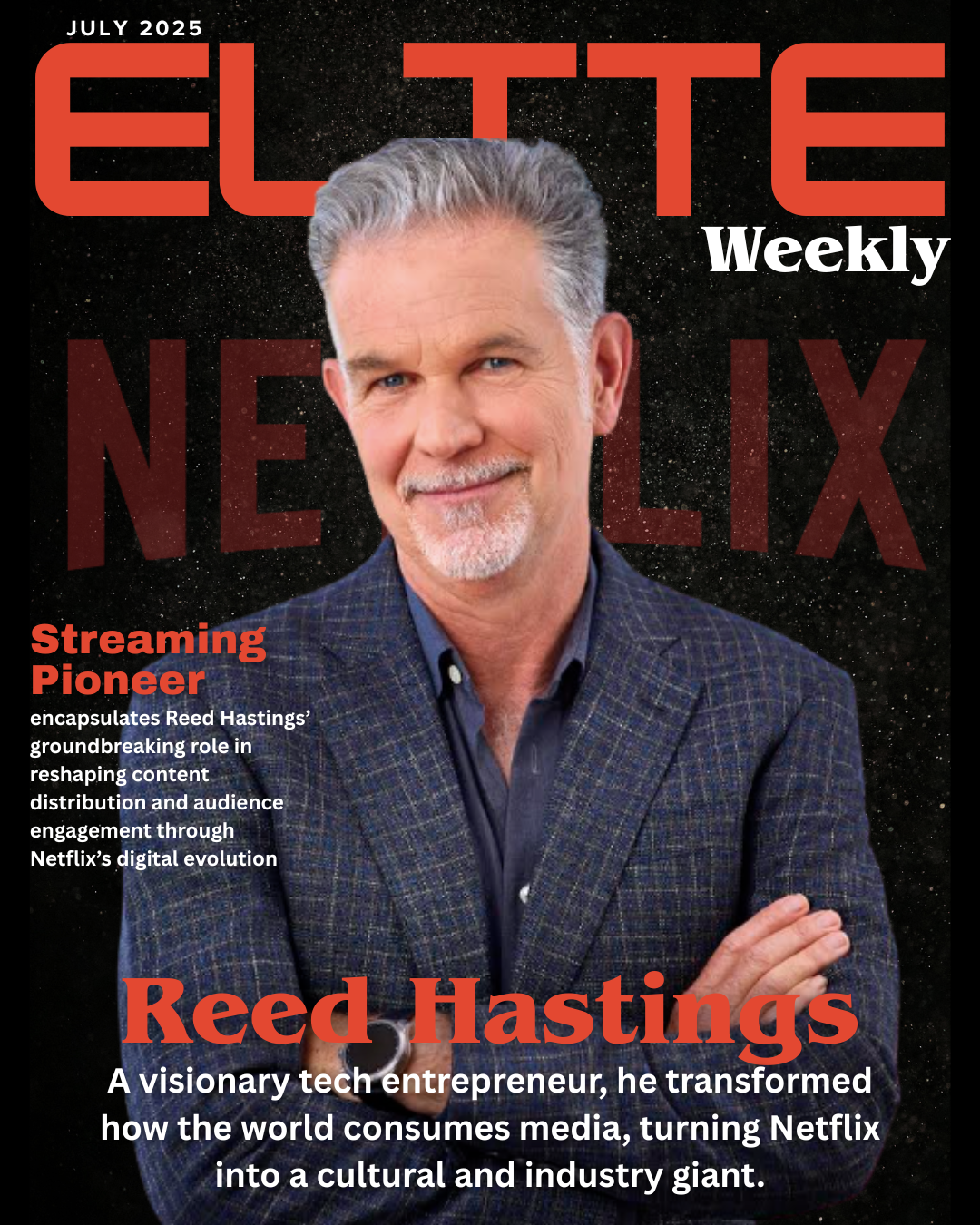Reed Hastings, co-founder and former CEO of Netflix, stands as one of the most transformative figures in modern entertainment. With a career rooted in both education and technology, Hastings combined strategic foresight, risk-taking, and innovation to reshape how the world consumes media. His journey from a computer science student to the architect of a global entertainment empire showcases a story of adaptability, disruption, and unrelenting vision.
Early Life and Education
Born on October 8, 1960, in Boston, Massachusetts, Wilmot Reed Hastings Jr. was raised in an academic and disciplined environment. After completing his undergraduate degree in mathematics from Bowdoin College in 1983, Hastings joined the Peace Corps and taught high school math in Swaziland (now Eswatini) for two years. This experience instilled in him a global perspective and a passion for problem-solving—traits that would later define his leadership style.
Upon returning to the U.S., Hastings earned a master’s degree in computer science from Stanford University. He then entered the tech world, founding Pure Software in 1991, a company that created debugging tools for engineers. Although he later admitted to struggling as a first-time CEO, he successfully led Pure Software through its IPO and eventual merger before stepping away—armed with lessons he’d apply to his next big idea.
The Birth of Netflix
In 1997, Hastings co-founded Netflix with Marc Randolph in California. Originally a DVD rental-by-mail service, Netflix began with a model that allowed users to rent movies online and receive them through the mail—a major convenience upgrade from the traditional video store experience. Legend has it that the idea came after Hastings was charged a hefty late fee for a rented movie, though he has since acknowledged that the story was more of a helpful myth than the literal truth.
What truly set Netflix apart was its subscription-based model, introduced in 1999. This eliminated late fees and allowed customers to rent unlimited DVDs for a fixed monthly rate—an innovative approach at the time. It wasn’t long before Netflix began disrupting the video rental giants like Blockbuster, whose reluctance to embrace change ultimately led to its downfall.
Pioneering Streaming and Original Content
The real revolution began in 2007 when Netflix launched its video streaming service. Hastings saw the potential of internet-based delivery and invested heavily in building the platform. This move marked the beginning of the decline of physical media and the rise of on-demand digital content.
Not content with just distributing shows and films, Netflix under Hastings ventured into original programming. In 2013, the company released House of Cards, its first major original series. It was a gamble that paid off: the show received critical acclaim and opened the door for a wave of Netflix Originals, from Stranger Things and The Crown to Squid Game and Bridgerton. Hastings transformed Netflix into both a content creator and distributor—blurring the line between Silicon Valley and Hollywood.
Leadership and Legacy
Reed Hastings’ leadership style was marked by a culture of freedom and responsibility. He famously promoted radical transparency within the company and created a work culture where performance was prioritized over traditional corporate structure. Netflix’s company culture deck, first shared publicly in 2009, became a landmark document in Silicon Valley, studied by businesses worldwide.
In 2023, Hastings stepped down as CEO, transitioning to the role of Executive Chairman. While no longer at the helm, his impact remains deeply woven into the company’s DNA. Netflix is now a multi-billion-dollar enterprise with over 200 million subscribers across the globe, setting trends in content creation, distribution, and consumption.
Beyond Netflix
Outside of his work at Netflix, Hastings has been an advocate for education reform. He’s served on several education boards and donated millions to charter schools and education technology initiatives. His philanthropic efforts underscore a commitment to improving systems—not just entertainment, but learning as well.
